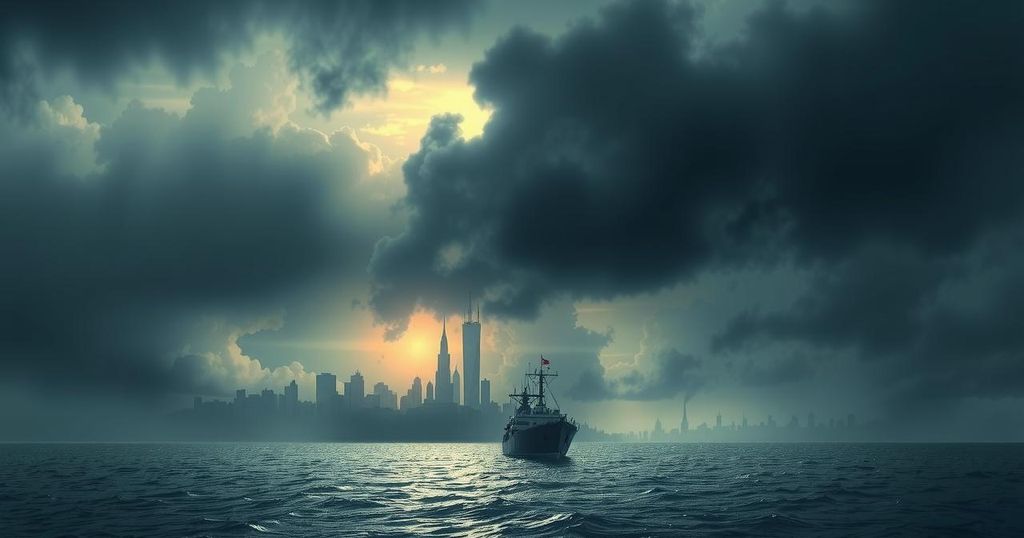The conflict in the Democratic Republic of Congo escalated as fierce clashes occurred between the Congolese army and M23 rebels, prompting the US, UK, and France to advise their citizens to evacuate Goma. Over 400,000 individuals have been displaced due to the violence, which has recently intensified near the city. International efforts for peace have yet to yield results, leaving the situation dire for many civilians affected by the conflict.
The ongoing conflict in the Democratic Republic of Congo (DRC) escalated significantly as clashes between the Congolese army and the M23 rebel group intensified near Goma. In response to the deteriorating situation, the governments of the United States, United Kingdom, and France advised their citizens to evacuate the city, indicating potential rapid escalation of violence. The humanitarian crisis continues to unfold, with the M23, reportedly supported by Rwandan troops, steadily gaining control of territories in the eastern DRC, particularly surrounding Goma, which hosts a million residents.
The United Nations reported alarming statistics, indicating that the conflict in North Kivu province has displaced over 400,000 individuals this year alone, a number that nearly doubles previous estimates. The UNHCR expressed grave concern regarding the safety of civilians in the affected areas, as heavy bombardments have forced families to flee multiple displacement sites in search of shelter. UN Secretary-General Antonio Guterres highlighted the catastrophic effects of the resurgence in hostilities and underscored the need for a swift cessation of violence.
Conflict near Goma erupted early on Friday, approximately 20 kilometers away, with reports of ongoing gunfire along the Kanyamahoro-Kibumba route. The M23 has extended its presence to Sake, where fighting occurred intensively the previous day. Congolese military helicopters were deployed to the region, conducting airstrikes against M23 positions, although it remains uncertain how extensive the armed confrontations have become.
Amidst the operations, the Congolese military reported the death of General Peter Cirimwami, the military governor of North Kivu, further complicating the situation. Civilians continued to flee from the frontline, with many seeking refuge in Goma itself. Historically, Goma has been a focal point of conflict in eastern DRC, having previously fallen under M23 control in 2012, before being retaken through international military and diplomatic interventions.
Recent diplomatic initiatives to resolve the current crisis have been ineffective, highlighted by the cancellation of a December meeting between Congolese President Felix Tshisekedi and Rwandan President Paul Kagame. Türkiye has proposed to mediate discussions between DRC and Rwanda, as multiple ceasefires in the region have repeatedly collapsed since July. The international community remains focused on stabilizing the region while facing a profound humanitarian crisis.
The Democratic Republic of Congo has faced ongoing violence and humanitarian crises, particularly in the eastern regions. The M23 rebel group and other armed factions have historically engaged with government forces and foreign military actors, leading to significant territorial control and loss of civilian safety. The international community, including the United Nations, frequently monitors the situation and calls for diplomatic resolutions to the violence affecting millions of displaced individuals in the region. The humanitarian needs are pressing, with a growing number of refugees and internally displaced persons.
The conflict in the DRC continues to escalate, with significant military clashes near Goma and a worrying increase in civilian displacements. International governments have urgently advised their citizens to leave the area, citing potential rapid deterioration of safety. Diplomatic efforts appear strained, and the humanitarian crises due to the growing conflict draw attention. The situation requires careful monitoring and intervention to avert further humanitarian disaster.
Original Source: thepeninsulaqatar.com






